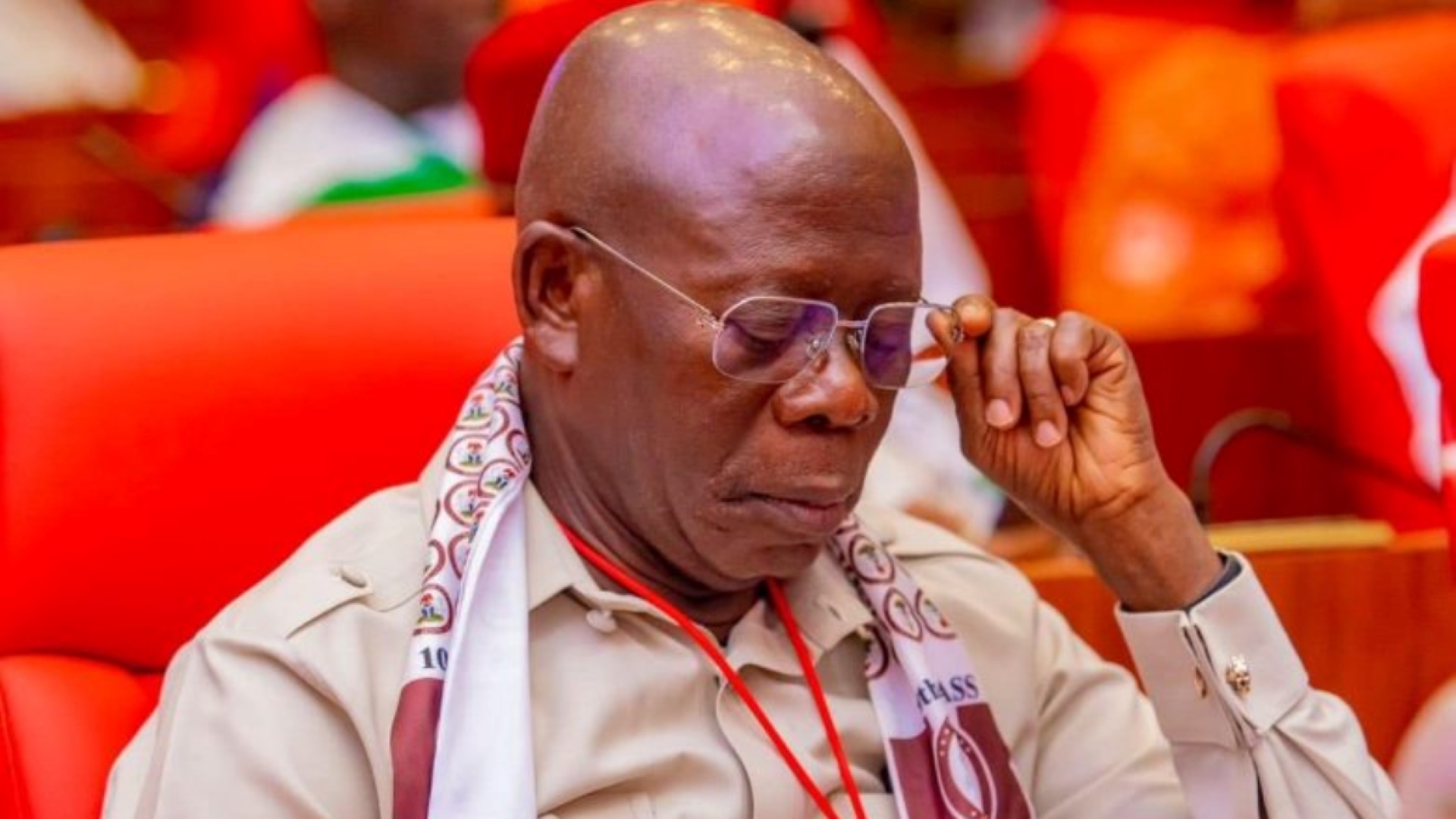Senator Adams Oshiomhole, representing Edo North, raised an urgent call for fair wages on Wednesday, asserting that today’s Nigerian workers are financially worse off than those in previous generations. His comments came during a talk for participants of the Executive Intelligence Management Course 17 at the National Institute of Security Studies in Abuja.
Oshiomhole highlighted that Nigeria’s much-discussed N70,000 minimum wage is worth only about $42 in today’s currency— a steep drop compared to the past. “Back in 1981, when the minimum wage was set under President Shagari, workers earned around N125, equating to $160 a month. Today, despite recent wage hikes, the exchange rate slashes N70,000 down to a mere $42,” he said. “This drastic devaluation means that workers are far poorer now, impacting their quality of life across the board.”
Oshiomhole urged wealthier states and the government to raise their wages beyond the minimum. Recalling his days as President of the Nigeria Labour Congress, he recounted pushing Lagos State to go beyond the baseline wage back then. “True commitment to workers means not just paying the minimum but paying fair compensation. Major employers, especially the civil service, should lead by example,” he added, expressing optimism that the Federal Government will adjust wages in the future.
While recounting his labor advocacy, Oshiomhole recalled how he had to pressure the current President—then Governor of Lagos State—to prioritize salaries, even if it meant delaying other projects. “As labor leader, my duty was to stand up for workers, not to compromise with employers,” he emphasized.
Beyond government employees, Oshiomhole called for expanding minimum wage protections to cover domestic and smaller-scale workers, advocating for updates to outdated laws. “The current law applies only to businesses with around 25-50 employees. But in our modern economy, even small ICT firms with 10 employees can achieve significant revenues, showing the need for reform,” he said.
Oshiomhole also shed light on what he termed the “Japa syndrome,” or the trend of skilled Nigerians emigrating. He illustrated the disparity, citing that in California, unskilled workers can earn around $2,560 monthly, far above Nigerian wages. “The minimum wage in California is $16 an hour. Multiply that over a standard month, and it’s clear why so many are drawn abroad,” he observed.
Still, Oshiomhole remains hopeful for Nigeria’s future, even amid the hardships. “We’re in tough times, but as the saying goes, tough times don’t last; tough people do. Nigerians are resilient, and if we make wise policy choices, better days will come,” he said, urging the government to make decisions that secure long-term prosperity.







